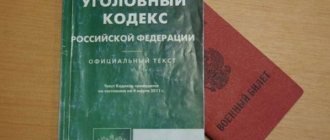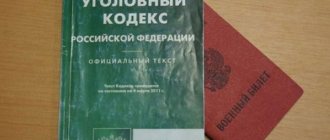ST 288 of the Criminal Code of the Russian Federation.
The assignment by a civil servant or municipal employee who is not an official of the powers of an official and the commission by him in connection with this of actions that entailed a significant violation of the rights and legitimate interests of citizens or organizations - is punishable by a fine in the amount of up to forty thousand rubles or in the amount of wages or other income of the convicted person for a period of up to three months, or compulsory work for a period of up to three hundred and sixty hours, or correctional labor for a period of up to two years, or arrest for a period of up to three months.
Concept of an official
In accordance with Note 1 to Art. 285 of the Criminal Code of the Russian Federation, officials are recognized as persons who permanently, temporarily or by special authority exercise the functions of a representative of government or perform organizational, administrative, administrative and economic functions in state bodies, local governments, state and municipal institutions, as well as in the Armed Forces of the Russian Federation and other troops and military formations of the Russian Federation.
Based on this concept, we can distinguish the following three groups of characteristics that underlie the recognition of a person as an official:
1. The nature of the functions performed makes it possible to clearly outline the circle of persons recognized as officials and excludes a broad interpretation of the subject of this group of crimes.
The content of the function of a representative of the government, and consequently the nature of the actions of the representative of the government, are determined by the tasks facing the body that he represents. The activities of a government representative are based on relationships with an indefinitely wide range of persons who are not under his administrative subordination.
A person performing organizational and administrative functions manages the activities of an institution, organization, enterprise, department, etc. Performing such functions invariably involves managing people.
For administrative and economic functions, the sign of managing people is not required. The main thing is the control and disposal of material assets, the organization of their release, receipt, safekeeping, sale, etc.
For officials - subjects of the group of crimes under consideration - it is obligatory to commit, when performing the functions named in the law, actions that have legal significance, i.e. establishing, changing or terminating the rights and obligations of individuals and legal entities.
Other characteristics named in the law are not decisive.
2. The legal basis for vesting a person with the relevant functions is a law, charter, instruction, order or other regulatory legal act of appointment to a position, which sets out the rights and obligations of the person holding a specific position.
Persons who are not appointed to the relevant positions, but actually perform the functions of an official, in accordance with the note to Art. 285 may be recognized as officials if they perform organizational, administrative or administrative duties, as well as the functions of government representatives under special authority. Special authority is granted by the body, official, or work collective authorized to do so. Special authority is formalized by order, decision of the work collective, etc.
3. An independent feature is the affiliation (characteristic) of those bodies and institutions in which the official works. By law, these can be state bodies, local government bodies, state and municipal institutions, as well as the Armed Forces of the Russian Federation, other troops and military formations of the Russian Federation. Officials working in public associations of various orientations, commercial organizations (production and consumer cooperatives, foreign companies, business partnerships, etc.) are not included. They are liable under Art. 201-204 CC.
The named characteristics of an official are inherent in all four categories of employees who may be subjects of crimes provided for in Chapter. 30 CC.
The first category is persons who meet the criteria named in Note 1 to Art. 285. They may be subjects of crimes provided for in Parts 1 and 3 of Art. 285; Parts 1 and 3 Art. 286; Parts 1 and 3 Art. 287; Art. 289; Parts 1, 2 and 4 art. 290; Art. 292; Parts 1 and 2 Art. 293 of the Criminal Code.
The second category is persons holding government positions in the Russian Federation. In accordance with Note 2 to Art. 285 of the Criminal Code are persons holding positions established by the Constitution of the Russian Federation, federal constitutional laws and federal laws for the direct execution of the powers of state bodies (President of the Russian Federation, Chairman of the Government of the Russian Federation, Chairmen of the chambers of the Federal Assembly of the Russian Federation, federal ministers, etc.). The list of government positions in the Russian Federation is contained in the Register of government positions of federal civil servants.
The third category is persons holding government positions in constituent entities of the Russian Federation. To them in accordance with Note 3 to Art. 285 includes persons holding positions established by the constitutions or charters of the constituent entities of the Russian Federation for the direct execution of the powers of state bodies (presidents of republics, governors of territories, regions, deputies of legislative (representative) power, etc.).
Officials of the second and third categories may be subjects of crimes provided for in Parts 2 and 3 of Art. 285; Parts 2 and 3 Art. 286; Parts 2 and 3 Art. 287; Parts 3 and 4 art. 290 CC.
The fourth category is persons holding the position of head of local government (mayor, prefect). They are elected on the territory of the municipality and are given powers to resolve issues of local importance.
The head of a local government body may be the subject of crimes provided for in Parts 2 and 3 of Art. 285; Parts 2 and 3 Art. 286; Parts 3 and 4 art. 290 CC.
All categories of officials, except for special ones, must also have the general characteristics of the subject of a crime (sanity, age).
Perpetrators of crimes with a special subject are only persons who possess their characteristics. Other persons may also be organizers, instigators and accomplices.
Signs that a living space must meet
Clause 2 of Article 15 of the Housing Code of the Russian Federation talks about the characteristics that a residential premises must meet: it must be isolated and suitable for permanent residence of citizens (meet established sanitary and technical rules and regulations, and other legal requirements).
The suitability of the premises for permanent residence is determined in the manner prescribed by housing legislation, according to specific sanitary, fire safety, urban planning and technical requirements. In particular, a residential premises must meet such consumer qualities as the permanence and all-weather nature of the structure, its real estate, its fundamental nature, and the conditions for conducting household activities for those living in it. Satisfying the need for long-term residence predetermines a separate type of residential premises with its inherent consumer properties and providing the opportunity to run a household. In addition, a residential building is subject to a minimum standard (taking into account local conditions) of sanitary and technical requirements that create a state of suitability of the structure for habitation for a long time.
Requirements for residential premises, the procedure for recognizing residential premises as suitable for living in and the grounds on which residential premises are recognized as unsuitable for living in, and in particular an apartment building is recognized as unsafe and subject to demolition or reconstruction, are established by Decree of the Government of the Russian Federation of January 28, 2006 N 47 “ On approval of the Regulations on recognizing premises as residential premises, residential premises unsuitable for habitation and an apartment building as unsafe and subject to demolition or reconstruction.”
Abuse of power
The generic object of abuse of official powers, as well as other crimes provided for in Chapter. 30 of the Criminal Code - social relations, the content of which consists of the activities of public authorities, the interests of public service and service in local governments, protected by criminal law, aimed at protecting the individual, society and the state.
The direct object of abuse of official powers and all other provisions provided for in Chapter. 30 of the Criminal Code of Crimes are social relations, the content of which is the activity of a specific public authority, protected by criminal law, aimed at protecting the individual, society and the state, the specific interests of public service and service in specific local government bodies. In the crime under consideration, in addition to the main one, there may be an additional direct object - health, property, etc.
From the objective side, abuse of official powers consists of the use of official powers, which means the commission of actions arising from the official powers of the subject. A person must act within the limits of his powers, which are established in the relevant regulations. When a person abuses official powers, he uses them contrary to the interests of the service, i.e. his act violates the proper functioning of authorities and management of state or municipal institutions, local government bodies, as well as their individual links.
The use of official powers is usually active actions, and they manifest themselves in a very diverse manner (violations of staffing and financial discipline, the established procedure for considering complaints and applications from citizens, so-called temporary borrowing, etc.).
A mandatory feature of the objective side of a crime is the consequences in the form of a significant violation of the rights and legitimate interests of citizens and organizations or legally protected interests of society or the state. Harm can be material (property damage, harm to health) and intangible (undermining the authority of government and administrative bodies, violation of the constitutional rights of citizens). The concept of the significance of harm is evaluative. The degree of significance of the harm depends on the impact of the unlawful act on the normal operation of the organization, enterprise, institution, the amount of material damage, the significance of lost profits, the number of victims, the severity of moral harm, etc.
To qualify an official abuse that has a material nature, it is necessary to establish a causal relationship between the consequences and the action (inaction).
The crime is considered completed from the moment at least one of the consequences specified in the law occurs.
The subjective side of the crime is characterized by an intentional form of guilt. A person acts with direct or indirect intent.
The presence of selfish interest is mandatory when a person seeks to obtain a property benefit without illegal gratuitous withdrawal and circulation of other people's funds for his own benefit or the benefit of others, or other personal interest, i.e. the desire to extract benefits of a non-property nature, due to such motives as careerism, protectionism, nepotism.
The subject of the crime is a special one - an official. A qualified crime (Part 2) is formed by acts if they are committed: a) by a person holding a public office in the Russian Federation; b) a person holding a public position in a constituent entity of the Russian Federation, or c) the head of a local government body (see notes 2 and 3 to Article 285).
Particularly qualified personnel (Part 3) are formed by the acts mentioned in Parts 1 or 2 of the article, if they entailed grave consequences. They can be tangible or intangible. These include, for example, a major accident, a long stoppage of the production process or transport, failure to complete a task, particularly large material damage, bodily injuries provided for in Parts 1 and 2 of Art. 111 and part 2 of Art. 112 of the Criminal Code.
Article 285 is a general rule in relation to special rules containing signs of other official crimes (for example, Art. 216. 299. 30.1 of the Criminal Code). According to the qualification rules for competition of norms, in such situations a special norm is applied. However, if there is a real set of crimes in the crime, it is possible to simultaneously apply general and special norms.
Comments on Article 288 of the Civil Code of the Russian Federation
In paragraph 1 of Art. 288 of the Civil Code of the Russian Federation talks about certain restrictions when the owner exercises his powers to own, use and dispose of residential premises. The specified powers of the owner in this case can be exercised only in accordance with the purpose of the residential premises .
From the intended purpose of residential premises established by law, it follows that the placement of commercial enterprises, offices of legal entities, and production facilities in residential premises is unacceptable.
The limits of the exercise of rights to residential premises should also include the obligation to properly handle residential premises , i.e. compliance with sanitary and hygienic requirements, construction and other norms and regulations. For example, the owner, tenant or any other user of housing in an apartment building does not have the right, without permission from the relevant authorities, to rebuild the apartment, install additional heating or other equipment, etc., that is, to carry out unauthorized redevelopment and reconstruction of the residential premises.
As a last resort, against the owner for mismanagement of the residential premises belonging to him, for example, for violating the rights and interests of neighbors, using the residential premises for other purposes, or for failure to carry out the necessary repairs, in accordance with Art. 293 of the Civil Code of the Russian Federation, a sanction for termination of ownership rights may be applied.
Exceeding official authority
The objective side of abuse of power is the commission of socially dangerous actions that clearly go beyond the authority of the official. Exceeding official powers is characterized by the commission of actions: a) within the competence of an official of a given department; b) falling within the competence of an official of another department; c) which could only be committed collectively; d) although within its competence, but which it could have committed in the presence of the conditions specified in the law or other regulatory act.
All of these forms of excess must clearly (obviously) go beyond the powers granted to the official. Understanding the obvious nature of abuse of power is mandatory for the subject of the crime. Therefore, in order to establish in each specific case of excess a clear violation of the limits of authority, it is necessary to clarify the content of the official’s authority.
A mandatory feature of the objective side is criminal consequences. This is a significant violation of the rights and legitimate interests of citizens or organizations or legally protected interests of society or the state. Their content is similar to the content of the consequences in Art. 285. Excess is characterized by causing harm to the person or the health of citizens, which is considered a particularly serious form of violation of the interests of citizens. The public danger of harm to the rights and interests of citizens increases due to the fact that personal harm by its nature is irreparable, and that it is caused by officials, whose primary duty is to protect the rights and legitimate interests of citizens.
When determining the significance of harm, one should proceed not only from the amount of property damage, but also take into account the moral harm caused to the individual. Excess often occurs in the form of a continuing crime. In this case, the harm consists of a number of consequences, which together determine its significance.
Causality is a mandatory objective sign of abuse of power. In this composition, the causal relationship is characterized by the absence of extension in time.
From the subjective side, abuse of power is an intentional crime. A person acts with direct or indirect intent.
The subject of the crime is a special one - an official.
Qualified excess (Part 2) can only be imputed to: a) a person holding a government position in the Russian Federation; b) a person holding a government position in a constituent entity of the Russian Federation, or c) the head of a local government body.
A particularly qualified crime (Part 3) is formed by the acts provided for in Part 1 or 2 of the article, if they are committed:
a) with the use of violence or the threat of its use. Physical violence may be accompanied by blows, beatings (Article 116 of the Criminal Code), and torture (Article 117 of the Criminal Code). Part 3 of the article covers cases of causing minor, moderate harm to health, as well as serious harm to health, provided for in Part 1 of Art. 111 of the Criminal Code. Intentional infliction in excess of death, grievous bodily harm, provided for in Parts 2, 3,4, Art. 111 of the Criminal Code, forms a set of crimes. Mental violence in the form of a threat of violence must be real and obvious to the victim;
b) using weapons or special means. The use of a weapon means the actual use of it to hit a living target, as well as as a means of physical violence to inflict blows, beatings, bodily harm or mental influence on the victim. Part 3 of the article refers to weapons as such, i.e. devices and objects that are structurally designed to hit a living target. This can be a firearm, bladed weapon, throwing weapon, pneumatic weapon, or gas weapon. According to their purpose, weapons can be civilian, service, combat, hand-held, small arms and bladed weapons. Special means include rubber truncheons, tear gas, handcuffs, means of destroying barriers and forcibly stopping transport, water cannons, armored vehicles, and service dogs. To qualify under Part 3 of the article, it is required that a weapon or special device be used in violation of the established rules;
c) causing grave consequences. In each specific case, the decision to cause serious consequences is a question of fact and is subject to careful evaluation. The concept of this feature is close to the concept of a similar feature in Part 3 of Art. 285.
Judicial practice under Article 288 of the Criminal Code of the Russian Federation
Appeal ruling of the Judicial Collegium for Criminal Cases of the Supreme Court of the Russian Federation dated May 24, 2018 N 5-APU18-19
Arguments contained in the appeal of lawyer A.V. Zelensky that G. transported a drug weighing 5399.9 g from one batch not for sale, but for storage in another place, he was convicted for his crime under Part 2 of Art. 288 of the Criminal Code of the Russian Federation, which, according to the lawyer, indicates the absence of an attempt to sell hashish weighing 5399.9 g and should lead to the qualification of the actions of Smorodin S.Yu. only under Part 1 of Art. , part 3 art. 228.1 of the Criminal Code of the Russian Federation, the Judicial Collegium recognizes them as insolvent.
Assignment of powers of an official
The objective side of the assignment of the powers of an official consists of two independent actions: the assignment of the powers of an official and the performance of certain actions in connection with this. Assignment of official powers is always accomplished fraudulently (a person verbally declares that he has official powers, uses uniform to perform the desired actions, presents a forged document). The person who usurps the powers of an official has no legal basis to exercise them. Conferring the title of specialist does not constitute the crime in question.
A person assigns authority to perform certain actions. They can be very different, but they are always illegal and are essentially offenses. It is as a result of such actions that socially dangerous consequences occur in the form of a significant violation of rights w
legitimate interests of citizens or organizations. Assigning authority to perform socially useful actions (for example, arresting a criminal) is not a crime.
A causal relationship must be established between these consequences and the assignment of powers to an official.
This composition is material. The crime is considered completed when the consequences specified in the law have occurred.
From the subjective side, this is an intentional crime. A person acts with direct or indirect intent.
The subjects of the crime are two categories of employees who have reached the age of 16: a) civil servants or b) employees of a local government body who are not classified as officials (see note 4 to Article 285). A civil servant is a citizen of the Russian Federation who, in accordance with the procedure established by federal law, performs the duties of a public position in the civil service for monetary compensation from the funds of the federal or corresponding constituent entity of the Russian Federation budget. An employee of a local government body is a citizen performing duties in a municipal position of a municipal service for a monetary remuneration from the local budget,
Illegal participation in business activities
Entrepreneurial activity should be understood as any type of activity of enterprises that are in municipal, private ownership and the property of public organizations, related to the generation of income. An exception is made for such types of activities as specified in the law, such as, for example, the production of narcotic drugs, potent substances and explosives; production of weapons, explosives, ammunition. Only state-owned enterprises can engage in them.
The objective side of the crime is formed by alternatively two types of actions: the establishment by an official of an organization carrying out entrepreneurial activities, or participation in its management personally or through a proxy. These actions cannot be carried out without the person using his official powers.
Each of the two options for the actions of the subject of the crime must be associated with the provision of benefits and advantages to such an organization or with patronage in another form. If the organization has not received benefits and benefits or patronage in another form, the action may constitute a disciplinary offense.
This crime has a formal composition. The crime is considered completed if one of the specified actions is committed.
From the subjective side, this is an intentional crime. The person commits it with direct intent.
A mandatory subjective feature of a crime is the purpose of providing benefits and advantages to a business organization or patronizing it in another form.
The subject of the crime is an official who is prohibited by law from engaging in entrepreneurial activity.
Receiving a bribe
The increased public danger of receiving a bribe is due to the fact that it is usually associated with other crimes and is a common form of corruption.
The subject of a bribe can be money, securities (government bonds, promissory notes, checks, deposit and savings certificates), other property (antiques, cars, furniture, imported equipment, precious metals) or property benefits (free provision of sanatorium vouchers, construction work, selling a valuable item for next to nothing). In accordance with Art. 575 of the Criminal Code of the Russian Federation, it is allowed to give gifts worth no more than five times the minimum wage. These value limits make it possible to distinguish a gift from a bribe.
If the subject of a bribe is property that is known to have been obtained by criminal means, the act must be qualified under Art. 290 and 175 of the Criminal Code.
The objective side consists in the official receiving a bribe personally or through an intermediary. Receiving a bribe means accepting it. A bribe can be received without any disguise or in a veiled form (borrowing money without repayment, bearer savings book). The receipt by an official of any valuables, allegedly for the purpose of transferring them as a bribe, without the intention of doing so, is fraud (clause “c” of Part 2 of Article 159 of the Criminal Code).
A bribe is received for actions (inaction) in favor of the bribe-giver or the persons represented by him. The law names alternative options for such actions (inaction): a) they are included in the official powers of the official (hiring, dismissal, promotion); b) a person, by virtue of his official position, can facilitate such actions (inaction) (quickly obtain a license, install a telephone); c) general patronage in the service (unreasonably promotes in the service, sends on business trips abroad) or d) connivance in the service (does not pay attention to absenteeism). The execution of a conditional action (inaction) lies outside the scope of the crime.
A person receives a bribe for performing (abstaining) certain actions in favor of the bribe-giver or the persons he represents: his relatives, friends, enterprises whose interests he represents.
This crime has a formal structure; it is considered completed at the moment of acceptance of at least part of the bribe.
From the subjective side, receiving a bribe is an intentional crime. The person commits it with direct intent. Taking a bribe is a selfish crime.
The subject of the crime is an official.
The qualified offense of receiving a bribe (Part 2) provides for an official receiving a bribe for illegal actions (inaction), i.e. crimes. The actual commission of an illegal action (inaction) by the bribe-taker forms a set of crimes. The commission of other offenses falls under the signs of connivance.
Qualified personnel (Part 3) are formed by the acts provided for in Parts 1 and 2 of the article, committed by a person holding a public office of the Russian Federation or a public office of a constituent entity of the Russian Federation, or the head of a local government body (see notes 2 and 3 to Article 285).
Particularly qualified personnel (Part 4) are formed by the acts provided for in Parts 1, 2 and 3 of the article, if they are committed: a) by a group of persons by prior conspiracy or by an organized group. Receipt of a bribe by a group of persons by prior conspiracy is committed by two or more officials who have agreed in advance to jointly commit a crime. Non-officials included in the group are liable as accomplices in receiving a bribe. The length of time between the conspiracy to accept the bribe and its acceptance is irrelevant. To qualify as an organized group receiving a bribe, it also requires that it include at least two officials and be sustainable; b) repeatedly, i.e. at least twice, unless the statute of limitations for criminal prosecution has expired. It is the receiving of a bribe that should be repeated, not the giving of a bribe; c) with extortion of a bribe. It is possible in two forms: a person directly demands a bribe or puts the bribe-giver in such conditions that he is forced to give a bribe. Extortion of a bribe must be accompanied by the threat of committing actions that could harm the interests of the bribe giver; d) in a large amount, which is the value of money, securities or property benefits (at the time of receiving the bribe), exceeding three hundred times the minimum wage (see note to Article 290).
Giving a bribe
The subject of giving a bribe is similar to the subject of receiving a bribe. From the objective side, the nature of the actions for which a bribe is given is the same as when receiving a bribe.
The bribe must be given only to the official. On this basis, giving a bribe differs from the crimes provided for in Art. 184 and 204 of the Criminal Code. The bribe is transferred personally or through an intermediary. The intermediary is the person who directly transfers the subject of the bribe. It does not matter whether he received a reward for complicity from the bribe-giver (bribe-taker) or not.
The crime has a formal composition. It is considered completed from the moment the bribe is accepted by the official. When giving a bribe in several stages, transferring part of the stipulated amount is a completed crime. If the person has not yet accepted the bribe or has rejected it, the actions of the bribe giver constitute an attempt.
From the subjective side, this is an intentional crime. The person acts with direct intent.
The subject of the crime is general, 16 years old, sane. The manager of an enterprise is responsible as a bribe-giver if he invites his subordinates to achieve the desired result by giving a bribe.
Qualified personnel (part 2) constitute giving a bribe to: a) an official for committing obviously illegal actions (inaction). Qualification on this basis is possible only if the bribe giver has proven knowledge that the bribe is given for the commission of illegal actions (inaction) by an official;
b) repeatedly, i.e. at least twice by a person who has not previously been convicted of such a crime (and the statute of limitations for criminal prosecution must not have expired) or by a person previously convicted of giving a bribe (and a conviction for a previously committed bribe must not be expunged or withdrawn) .
In the note to Art. 291 names two grounds for releasing the bribe-giver from criminal liability: a) if the person was extorted for a bribe by an official. The concept of extortion is similar to that discussed in Art. 290; b) if the person voluntarily reported giving a bribe to an authority that has the right to initiate a criminal case. A report is considered voluntary if it is made of one’s own free will, but not due to the fact that the crime has become known to the authorities. It can be oral and written.
Official forgery
The law defines official documents as the subject of official forgery, which should be understood as written acts emanating from institutions, enterprises or organizations certifying facts or events of legal significance (orders, publishing agreements, invoices, labor agreements, private documents in files government agency). They must have the necessary details and the signature of the official.
Forgery of documents that come from commercial structures, various non-profit organizations that are not related to government bodies, local governments, state and municipal institutions is qualified under Art. 327 CC.
From the objective side, forgery consists of entering deliberately false information into official documents. Genuine documents are filled with information that does not correspond to reality. Another option for dealing with forgery is to make corrections to official documents that distort their actual content (correcting individual details, altering the text of the document).
Depending on the method of committing the forgery, it can be material (erasure, erasure of text). It leaves visible, tangible traces and can be identified by forensic analysis. Intellectual forgery is the production of a document that is false in content, but correct in form, drawn up on an authentic form, etc. In this case, forgery is established by proving the falsity of the facts or events themselves, which are evidenced by the document.
By design, the crime under consideration is formal. The crime is considered completed from the moment of commission of at least one of the actions named in the law.
From the subjective side, official forgery is an intentional crime. The person acts with direct intent.
Mandatory signs are selfish (i.e. the desire to get rich or avoid property expenses) or other personal interest (revenge, careerism, envy, etc.).
The subject of the crime is an official, as well as a civil servant or employee of a local government body who is not an official (see notes 1.4 to Article 285).
If official forgery acts as a method of committing another crime, what was done forms a real set of crimes (for example, Articles 292 and 160, Articles 292 and 159 of the Criminal Code). Forgery does not require independent qualification if it is a constructive sign of another crime (see, for example, Article 339 of the Criminal Code).
The intended purpose of the residential premises is for citizens to live in them
In paragraph 2 of Art. 288 of the Civil Code of the Russian Federation talks about the special legal regime of residential premises, which are intended for the residence of citizens and the residence of their family members.
In certain cases, they can be used for the residence of other persons, for whom they, in accordance with Part 2, Clause 2, Art. 288 of the Civil Code of the Russian Federation can be rented out by the owner on the basis of an agreement (rent, loan, etc.), but also exclusively for residence .
Residential premises can be occupied as a recipient of rent or as a legatee (if a “housing” testamentary legacy is established in favor of such a person). However, in all cases without exception, any user of housing (from the owner to the derivative owner) is assigned a universal legal obligation, the essence of which is that the residential premises must be used for its intended purpose.
Thus, the use of residential premises is intended :
- for residence of the owner and his family members;
- for the residence of other persons with the permission of the owner on the basis of a lease, rental agreement, etc.





